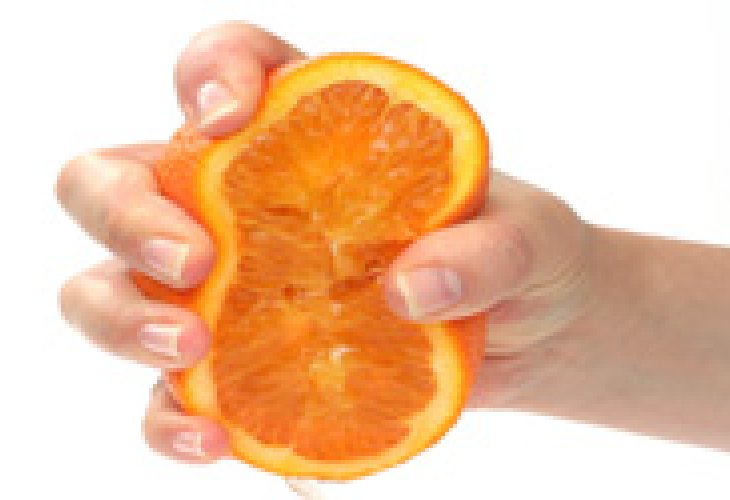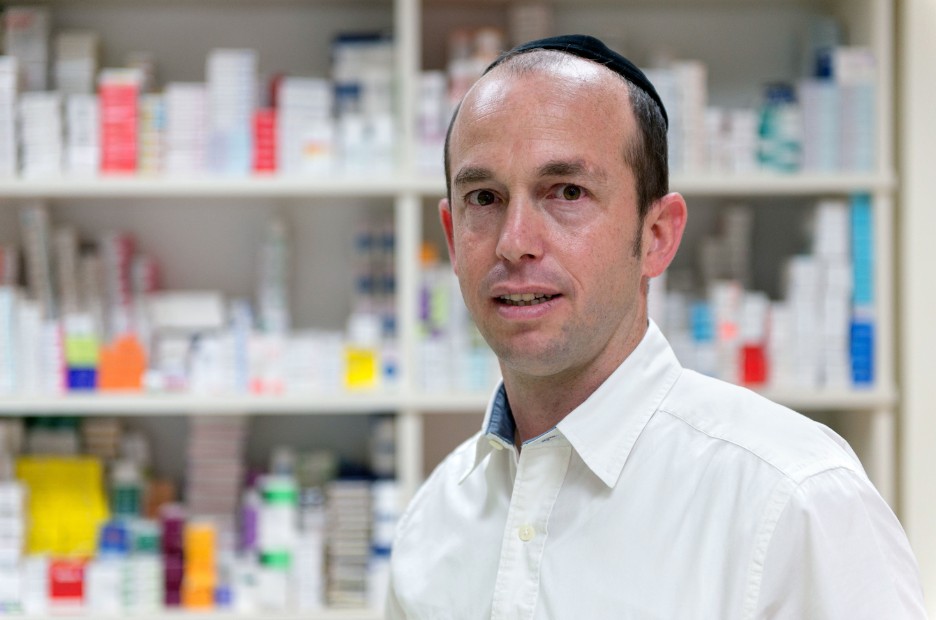Second-Hand Medications: Stop Throwing Away Your Aspirin
Hundreds of patients face a daily dilemma: buy bread or medicine? 'Friends for Health' activists set up a used medication distribution system, saving lives and millions daily. Interview with Baruch Lieberman, CEO of the association.

Until a few years ago, millions of used medications were thrown away or destroyed. Why? Because it's what we all do when the flu passes, and the cough medicine pack remains nearly full. Baruch Lieberman and the late Rabbi Yechiel Landman, two Haredi friends, saw the immense potential here and decided to take action, rolled up their sleeves, and established the 'Friends for Health' association. Initially, the association mainly assisted oncology patients, but over time its activities expanded, recruiting medications and medical supplies for those in need.
Since its establishment 12 years ago, the association has helped hundreds of patients receive medications and even received a Presidential Award for its volunteer activities. "It's unbelievable that in 2015, there are people in Israel who can't afford even 15 shekels for a simple medication," explains Lieberman, the CEO of the association. "It reaches such severe situations that the patient negotiates with the doctor which medication to prescribe. And even when they receive the cheapest medicines, without questioning their effectiveness, it's still a lot for them."
Lieberman (40), a resident of Elad, admits: "We witness dozens, if not hundreds of chronic patients, calculating every month whether to buy bread and milk or the medication they need. It's an impossible dilemma since you can't survive without bread and milk, but on the other hand, if they don't buy the medication, the illness could be fatal. The situation is simply absurd."
And that's where you come in.
"Correct. We calculated that everyone has packs of various medications they don't use. If everyone donates the medicines they don't need to someone who does need them, not only would we save millions, but we'd also save lives. It doesn't matter if it's aspirin for 10 shekels or a drug that can cost up to 30,000 shekels. To give you an idea, a 2008 survey showed that medications that could have saved dozens of lives but instead were thrown away were worth 1.5 million shekels. Isn't that a waste? Those huge amounts can translate into saving lives, and everyone can contribute in this area."
Among other things, the 'Friends for Health' association was established to identify patients who fall through the cracks. "There are many patients who don't 'photograph' well to medical committees and therefore do not receive what they are entitled to by law, so we try to help in this area too," he adds.
 Baruch Lieberman, CEO of the association
Baruch Lieberman, CEO of the associationBaby Saved From Blindness Thanks to an Ointment
'Friends for Health' understood the simple equation: Medications cost money, and they can save lives. "To make the assistance accessible to people who want to donate, we have over 300 collection points throughout the country and a network of drivers transferring the medicines from place to place," says Lieberman.
At the same time, the association's activists do everything to check if a person is eligible for certain medicines if they are not included in the health basket or if they didn't pass the health funds' medical committees. "Few know that after every regular medical committee, there is also an 'exceptions committee,'" says Lieberman, "If there's proof that the medicine helps the person even though it's not in the basket, the committee doctors will usually consider giving it and consider the person's financial situation. Many times, we direct patients to the pharmaceutical companies themselves to request the donation directly from them. Although we don't operate a legal department, we certainly inform the patient if they can win in medical committees with legal representation. I know dozens of such cases that passed through us, were referred to legal proceedings, and indeed won."
But turning to the courts can be a long and arduous process. What happens to the patient during this time?
"In most cases, we strive to provide them with the medicine until they win the trial and receive it within the health basket."
According to Lieberman, often the cheapest medications assist the most severe cases. "Let me give you an example from just a few days ago. A request came for a two-year-old baby who needed 'Zovirax' ointment for herpes that developed in her eye.
"In the baby's case, it was a very dangerous situation because if the herpes is near the eye, it can damage the cornea and cause blindness. *Zovirax* is known as an excellent ointment for treating herpes, but unfortunately, it turned out that the ointment was missing from the market. I went to our office and searched every corner. Finally, by the grace of Hashem, the ointment was found, and that evening we sent a driver to the child's home."
Lieberman often faces the dilemma of where to send critically ill patients without funds for life-saving medications, and a potential donor has yet to be found. "It's a daily challenge, and every time you're in it, you feel torn inside. On one hand, there's a tremendous desire to help and turn the world upside down for the patient's well-being, while on the other hand, your hands are tied."
Adding to this is the entire operation around medications – deliveries, sorting, filing, transportation, and ongoing payments – meaning the financial resources constantly need to grow, which isn't always the case in reality. Yet, this doesn't stop Lieberman from continuing this work for the public good. Recently, a unique pharmacy of the association was established in Bnei Brak called the 'Medication Distribution Center' – a regular pharmacy in all respects, containing first-hand medications.
How is the association's pharmacy different from regular pharmacies?
"The only difference is that we deal with medications three months before their expiration date, received from various pharmaceutical companies in the market (Teva, Pfizer, Novartis, and more). In this way, we actually make the system more efficient. Patients can receive first-hand medications, and pharmaceutical companies don't lose huge sums by destroying these medicines."
When asked about his greatest aspiration regarding this work, Lieberman replies: "I wish there were no more patients in Israel, but if this is a situation we must cope with, there shouldn't be a case where people are choosing between food and medication. I estimate that more than 10,000 such people exist among us, not counting those who are unreported. The great desire is to reduce these numbers as much as possible, ensuring there is no more bargaining of health for the patient."
Watch the episode about the medication basket from "A Day's Story" on the Hidabrut channel:

